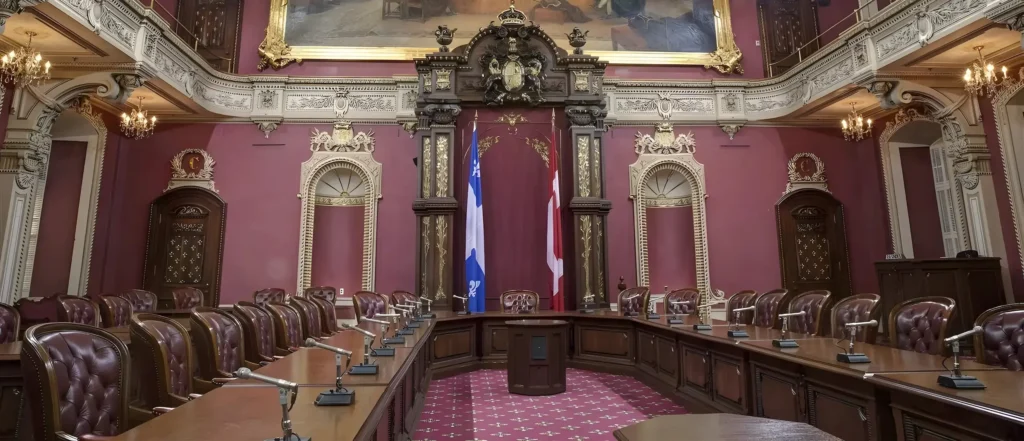In Quebec, parliamentary committee consultations represent an optional - albeit highly democratic - stage in the legislative process. Once a bill has been introduced, the Government House Leader (the ruling party's master of parliamentary strategy and procedure) has the option of sending the legislative text to one of the eleven committees operating in the National Assembly for study. These commissions take the form of working groups made up of elected representatives from each party (and sometimes even independent deputies), covering a defined area of government action.
Two of these committees are permanent: the Committee on the National Assembly governs everything to do with the running of our people's house, while the Committee on Public Administration has the essential mission of exercising parliamentary control and scrutiny over the way in which public funds are spent by the government. The other nine commissions are sector-specific, and this is where things can get interesting for your organization.
You're an expert in your field
Regardless of the field in which your company or organization operates, every parliamentary session there is a commission that studies bills that may have a direct impact on the conduct of your business and the achievement of your objectives, whether these be financial or political.
How many times have you said to yourself that a government regulation doesn't fit with the reality on the ground? That a law that is essential to your community deserves to be modernized? This thought alone should convince you of the value of raising your hand to be heard during specific consultations on a bill for which your experience would be considered enlightening.
Sharing and popularizing information in this way, by making relevant content accessible to elected representatives in a convincing and effective way, helps to raise awareness among parliamentarians and steer their work in the direction you prefer. In addition to improving or enhancing, in the best of all possible worlds, the content of the legislative text under consideration.
The opportunity to make one's voice heard and assert one's expertise is still too little known. It's just that you have to be prepared to do it well, by putting in the necessary effort - and by being properly supported in the process.
You have the opportunity to make a difference
The legislative agenda does not make life particularly easy for groups wishing to be heard in parliamentary committee. Not only does it offer little predictability as to when a bill will be tabled (and, incidentally, when specific consultations will take place), but groups can't be sure they'll be able to appear before parliamentarians. Fortunately, there are several ways to prepare for these eventualities.
First of all, strategic intelligence is often your best ally. Perceiving upstream signals from political players and public administration on their intentions, anticipating opportunities as well as potential risks for your organization, making informed decisions on the way forward, adapting to change and preserving your reputation are all reasons why you should always keep an eye on parliamentary news.
Next, it's important to update your requests or recommendations regarding the issues covered by a pending bill. You will often have little time between the introduction of the bill and the time you are called before a parliamentary committee. And this summons rarely comes with a bang! As soon as your interest in being heard is confirmed within your organization, you should quickly make it known to the office of the minister responsible for the bill and/or that of the government leader, so that your name is included on the list of invited groups (negotiated between the parliamentary leaders of the different parties). Now is the time to mobilize your contacts within the ministry and the teams of opposition spokespersons concerned.
Finally, you need to come to the consultations well prepared. What is the government's justification for its bill? What is the opposition's position? What is your reading of public opinion, of the prevailing reaction in your community? Most of the groups heard submit a brief to the members of the parliamentary committee in question. This brief should summarize the main points of your arguments and set out your recommendations regarding the bill under consideration. Above all, expect to be questioned. One appearance before a parliamentary committee means a third of the presentation, for twice the number of answers you'll have to provide to the elected representatives in attendance. It goes without saying that being backed up by a team of public affairs specialists here can go a long way to boosting your confidence. So, shall we meet in parliament?

